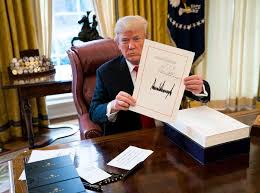+80,717 USD: Focus on U.S. Employment Data and Middle Eastern Situation! Exploring Forex Market Outlook
Trading Results (October 21 – October 25)
- Weekly Profit: +80,717 USD
- Comment: This week’s results were positive due to a deliberate reduction in position holding times, enabling quicker profit-taking amid rapidly changing trends.
Upcoming Important Events
- October 27: U.S. Presidential Election & Japanese House of Representatives Election
- Both elections are expected to significantly impact the forex market, which will likely remain uncertain.
- Continued attention is needed on economic indicators and central bank policies.
- Geopolitical risks are rising, especially regarding the Middle East and election outcomes.
Outlook for Major Currencies
- USD/JPY: Neutral to Bullish
- Expectations of inflation acceleration from tax cuts and fiscal stimulus due to the U.S. elections may slow or halt the Fed’s rate-cutting pace.
- Volatility in USD/JPY is possible based on the election results.
- EUR/USD: Neutral to Bearish
- Eurozone GDP and October CPI may raise expectations for additional ECB rate cuts in December.
- AUD: Neutral to Bullish
- Watch for the Q3 CPI and September retail sales on October 30-31.
- ZAR: Neutral
- Attention on the MTBPS for growth strategies, with caution due to deteriorating relations with Western countries.
- GBP: Neutral to Bearish
- The upcoming BOE meeting on November 7 is likely to see increased rate-cut expectations.
- CAD: Neutral to Bearish
- The BOC’s recent decision for a 50bp rate cut indicates potential for further reductions.
Key Considerations
- Geopolitical Risks: Heightened tensions in the Middle East, particularly between Israel and Iran, could lead to significant market fluctuations.
- Economic Indicators: Important metrics like U.S. employment data, Eurozone GDP, and various CPIs will greatly influence currency movements.
- Central Bank Policies: Monitor comments from central bank governors for potential market reactions.
Conclusion Continue to stay alert to market trends and adapt flexibly to short-term changes.
Postscript Thank you for reading this week’s FX Trading Report. This week’s focus is on fasting.
Fasting provides numerous health benefits, including weight loss, improved metabolism, stable blood sugar levels, and enhanced immune function. Prolonged fasting activates autophagy, promoting cellular repair and potential anti-aging effects, and can increase concentration and mental clarity for traders.
Effective Fasting Methods:
- 16-Hour Fasting (Intermittent Fasting): 16 hours of fasting followed by an 8-hour eating window can promote fat burning and improve focus.
- 5:2 Diet: Eat normally for five days and limit calories for two days to refresh the mind and body.
- OMAD (One Meal a Day): Consuming only one meal a day can enhance short-term focus.
By implementing these methods moderately, traders may better maintain concentration during trades. Start gradually and monitor your health and performance.
Let’s focus on health and aim for trading success next week!
P.S.
This week, there’s a discussion about the global movement towards reducing dependence on the U.S. dollar.
On October 22, the BRICS summit was held in Kazan, western Russia, where a new common currency called “The Unit” was announced, marking a further step away from dollar dependence. Reuters Article
This initiative serves not only as a strategy to evade U.S. sanctions and financial pressures but also as a means to promote the multipolarity of international finance. Of course, the dollar’s global influence remains strong at this stage, and it is unlikely to easily relinquish its hegemony in the short term.
Historically, transitions of international currency hegemony are gradual processes that can take decades. The dominance of the dollar was established over several decades following World War II.
The success of BRICS will depend not just on the introduction of the currency but also on extensive reforms and cooperation in economics, trade, and politics. Additionally, how quickly financial markets accept the new currency will be a key determinant of its success.
Beyond BRICS, many countries are implementing measures to reduce reliance on the U.S. dollar, including the introduction of Central Bank Digital Currencies (CBDCs), the decline of the petrodollar system, and the common currency between Brazil and Argentina. Although this shift may occur slowly, the value of the dollar is expected to decrease as many alternatives emerge.
For the FX market, the realization of a new currency regime may change the dollar’s volatility and the need for risk hedging, making this a topic of interest for traders.
Wishing you a great weekend!


